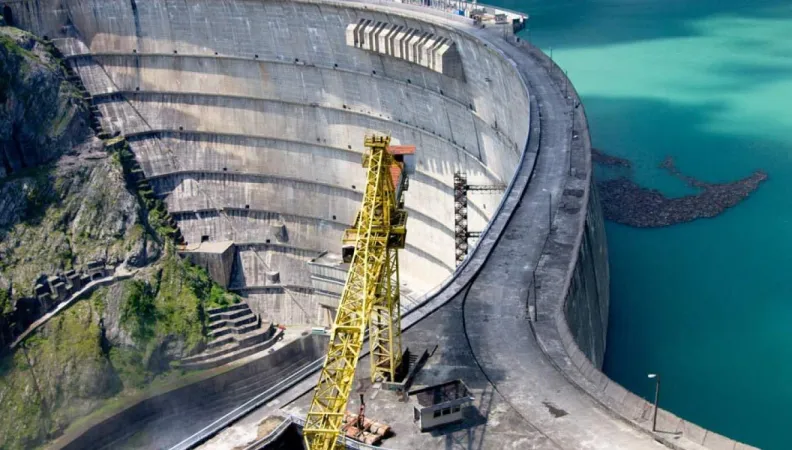Share the page
Team Europe: Where Member States Scale Up Impact
Published on

To mark the French Presidency of the Council of the European Union from 1 January to 30 June 2022, AFD Group is publishing an interview with a specialist on development issues at the European level every month.
This month, an interview with Koen Doens, Director-General for International Partnerships (INTPA) at the European Commission.
The European Multiannual Financial Framework for 2014-2020 was marked by the deployment of a number of financing instruments, such as trust funds, a ramp-up of loan-grant blending and the creation of guarantees. What is your view of Agence Française de Développement Group's contribution to this movement?
Koen Doens: A positive and attentive view, because AFD is a key partner for us in our support for public policies for development and sustainable growth, as well as for the stabilization of the most fragile areas. AFD is one of the main providers of budget support around the world, mainly through loans, and we work closely together to provide the best possible response to the needs of our partner countries. For example, this has been the case in Burkina Faso, where we’ve each supported the education and health sectors, and Senegal, where we’ve worked together in the water and sanitation sectors.
The response to the Covid-19 crisis has given us the opportunity to step up this cooperation through Team Europe, which has become the backbone of European Union programming for 2021-2027. By combining what we do collectively via the European Union and what Member States do through their bilateral action, we create a package that is larger and stronger than the sum of its parts. We use everyone’s specific talents for the collective benefit. It’s a bit like the French national football team! The time is right to pursue this avenue and AFD Group’s experience is particularly valuable.
Expertise France officially joined AFD Group on 1 January 2022. What do you think about this structure, which brings together AFD, Proparco and Expertise France?
K. D.: The European Commission is following with interest this French dynamic for integration. It’s a strategy that echoes Team Europe’s search for more concerted approaches. These developments are both part of a more strategic approach and reflect the conviction that “doing things together” delivers effectiveness and results.
Further reading: Anna Lipchitz: “AFD and the European Union: Using Converging Strategies to Tackle World's Development Challenges”
AFD Group’s expansion will allow the Commission to cooperate with an operator that works in a holistic way. It will be able to take advantage of a wide array of invaluable assets: extensive experience in the field of development, multi-sectoral expertise, a significant presence on the ground and a deep understanding of the financial constraints of our partner countries.
What do you expect from AFD Group with the new European Multiannual Financial Framework for 2021-2027? What joint objectives could AFD and the European Commission set in the coming years?
K. D.: The Team Europe format offers the European Union and its Member States the opportunity to scale up our collective impact and increase our visibility. The partnership with AFD Group will help us translate this approach into concrete actions. It involves implementing the common vision of a sustainable, inclusive, green and digital recovery. Building on its new mandate, AFD Group will be able to contribute to stimulating investment in our partner countries, while offering a technical assistance capacity to support these dynamics.
Our objective with Team Europe’s initiatives, and AFD Group participates in both their design and financing, is to unite all the forces of European cooperation so that we can build truly transformational projects to support the priorities of our partner countries. With the development of AFD Group, this cooperation can draw on a comprehensive range of instruments, modalities and resources. Agence Française de Développement’s presence on the ground is also a major advantage.
The precedent created by this enhanced partnership also makes it important: we wish to move towards more partnerships like this, so that we can continue to increase our effectiveness and impact.
Discussions are ongoing on the architecture of European aid, especially on the role of bilateral and multilateral financial institutions. How do you see the architecture of aid of tomorrow?
K. D.: The EU has set out to strengthen its financial architecture for development. This involves stimulating the joint coordination and investments between European financial institutions, in the spirit of Team Europe and an open and inclusive framework. Good coordination between financial partners plays a crucial role in mobilizing the necessary investments, especially during the current health crisis. The expertise and know-how of AFD Group, which is itself working on its consolidation, will contribute to this enhanced European action.
